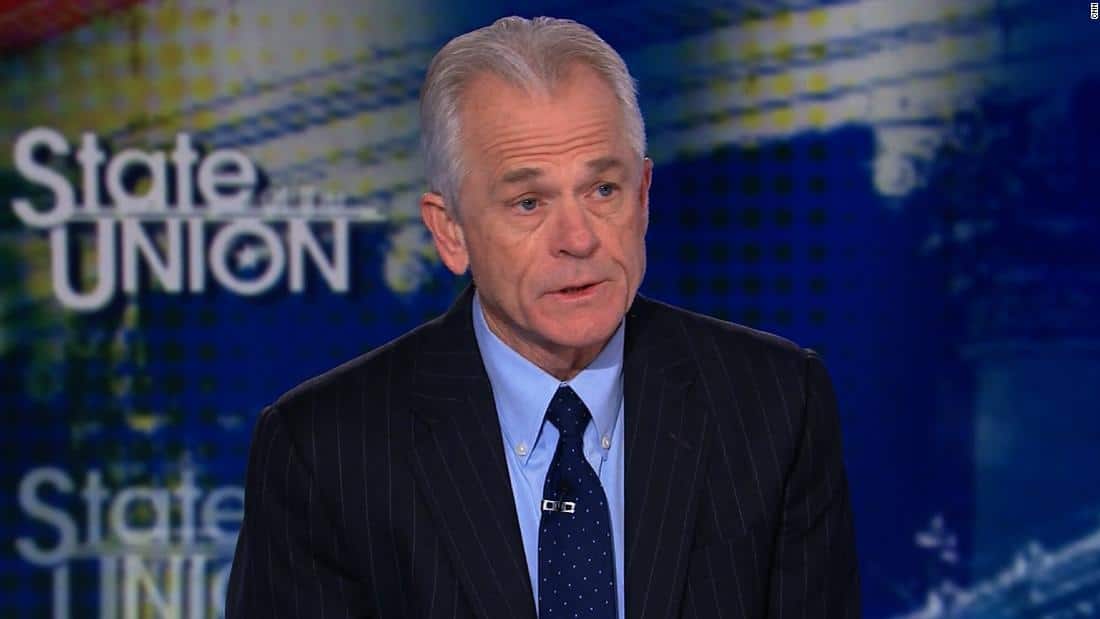Duties were announced on steel and aluminum last week but text hasn’t been drafted
Developments on Day 409 of the Trump Administration
Uncertainty Over Possible Tariff Exemptions
Donald Trump’s sudden declaration of tariffs on imports of steel and aluminum falls into confusion over its implementation.
Trump suddenly decided last Thursday to announce the 25% increase on steel and 10% on aluminum — mainly affecting US allies such as Canada, Japan, South Korea, and the European Union — reportedly as a reaction to the departure of his White House confidante Hope Hicks and after watching pro-tariff ads on Fox TV.
In his latest tweet on the issue on Sunday night, he shouted:
We are on the losing side of almost all trade deals. Our friends and enemies have taken advantage of the U.S. for many years. Our Steel and Aluminum industries are dead. Sorry, it’s time for a change! MAKE AMERICA GREAT AGAIN!
— Donald J. Trump (@realDonaldTrump) March 5, 2018
But Trump’s advisors, faced with implementation of his sudden decision, struggled on Sunday with the details.
Peter Navarro, a fervent proponent of the tariffs along with Commerce Secretary Wilbur Ross, said that — despite the loud objections from US allies and the prospect of retaliation — no country will be excluded: “As soon as he starts exempting countries, he has to raise the tariff on everybody else. As soon as he exempts one country, his phone starts ringing from the heads of state of other countries.”
But, with US businesses warning of damage from the increased cost of steel in their processes, Navarro said individual companies could apply for exemptions for certain products.
Tipping off the possible difficulty of going through a list sector by sector and company by company, the advisor said the tariffs order could be signed “toward the end of the week” and then “at the latest, it would be the following week”.
Ross was even vaguer in his remarks:
Whatever [Trump’s] final decision is, is what will happen. What he has said he has said. If he says something different, it’ll be something different.
If he for some reason should change his mind, then it will change.
Both Navarro and Cohn insisted — as they did in arguments within the White House with anti-tariff officials such as economic advisor Gary Cohn and Treasury Secretary Steven Mnuchin — that costs to US businesses and consumers would be minimal.
Ross, a billionaire, said the effect would be “a fraction of a penny on a can of beer.” Navarro defied the assessment of Chris Wallace of Fox News that the costs, when multiplied by all products that use steel and aluminum, would be in the billions of dollars: he said the price is “insignificant” to preserve US steel and aluminum industries.
“The Tariffs Don’t Actually Exist Yet”
Axios reported on Sunday that while Trump has been declaring, “I want tariffs!”, since August, the White House battle has been waged since January with Navarro and Ross pitted against Cohn, Mnuchin, and Staff Secretary Rob Porter.
The anti-tariff group held off action then, but the balance swung with Porter’s forced resignation last month over allegations of spousal abuse. Then came last week’s departure of White House Communications Director Hicks, upon which Trump has relied since his campaign. Already angry at Attorney General Jeff Sessions over the Trump-Russia investigation, Trump told Ross and Navarro to bring him the tariffs and suddenly announced the measures.
Axios summarizes, “The process was so rushed that the tariffs don’t actually exist yet — the details haven’t been ironed out or legally vetted. The interagency process effectively died with Porter’s departure.”

